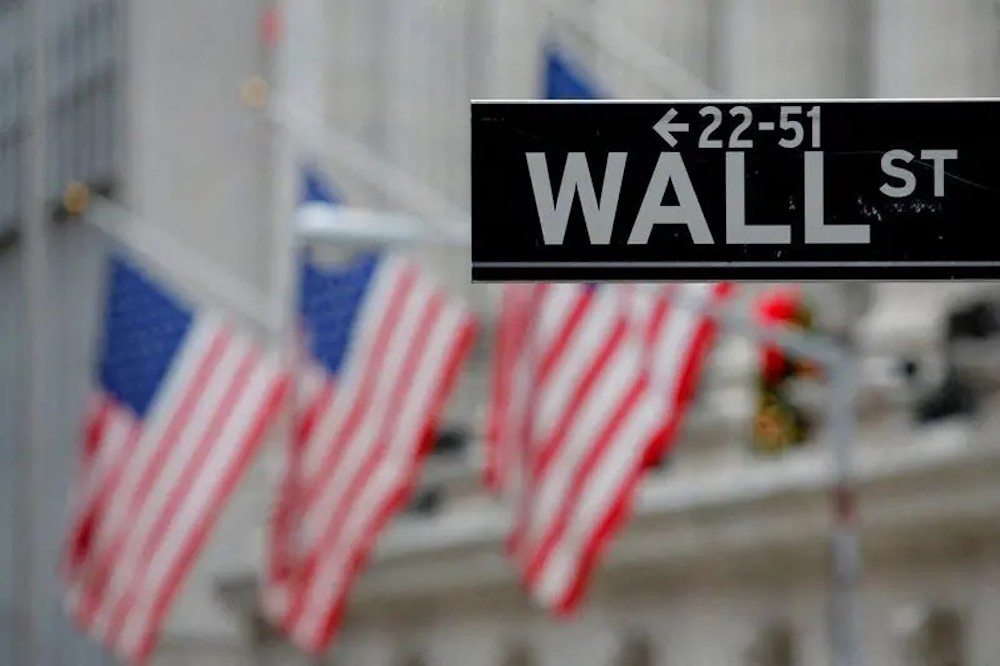
Dow Futures remained near the flatline after a decline in equities and an increase in U.S. government bond yields in the previous session. Market participants are closely monitoring forthcoming business activity data alongside a possible early morning vote in the U.S. House of Representatives regarding President Donald Trump’s extensive tax and spending legislation. In the interim, it has been reported that OpenAI’s CEO is targeting the launch of an artificial intelligence product in 2026. U.S. stock futures exhibited a subdued tone on Thursday, indicating a pause for markets following a sell-off in the previous session.
The Dow futures contract remained largely stable, while S&P 500 futures increased by 6 points, or 0.1%, and Nasdaq 100 futures saw an uptick of 26 points, also representing a 0.1% rise. The primary indices experienced a decline on Wednesday, influenced by a surge in U.S. Treasury yields, which was partially driven by apprehensions that Trump’s tax legislation would contribute trillions of dollars to the already substantial national debt. Weak demand for a $16 billion auction of 20-year Treasury bonds exerted upward pressure on yields, which typically move inversely to prices.
Traders were evaluating the mixed earnings reports from retail companies, which are perceived to be potentially vulnerable to the impact of stringent U.S. tariffs. Lowe’s, a home improvement firm, reaffirmed its full-year guidance, despite disappointing figures from the big-box retailer Target, which focuses more on discretionary items.Investors are shifting their attention to an imminent preliminary reading of business activity, which may offer new perspectives on the effects of Trump’s tariffs. S&P Global’s composite purchasing managers’ index experienced a decline to 50.6 last month, a decrease from 53.5 in March, and remains just above the 50-point threshold that indicates expansion.
The index’s tracker of the manufacturing sector is anticipated to decelerate to 49.9 in May, whereas the services gauge is projected to increase marginally to 51.0. Numerous companies have indicated that the ambiguity surrounding the impact of the extensive U.S. tariffs has complicated the planning of future investments. Analysts have observed that although the duties have not significantly impacted U.S. inflation thus far, there is potential for prices to rise as businesses deplete inventories accumulated before the tariffs were enacted.
Murkiness also surrounds whether Trump will extend a delay to his elevated “reciprocal” levies on a host of countries after the pause expires in July. A distinct delay of tariffs on China is also set to conclude in August. The U.S. House of Representatives is poised to conduct a pre-dawn vote on Trump’s “big, beautiful” budget bill, as Republicans in control of the chamber aim to resolve days of internal discord regarding the legislation. The legislation, in conjunction with the extension of the 2017 tax cuts, would reduce taxes imposed on tips and car loans, while simultaneously increasing expenditures on defense and border security. The bill also encompasses reductions to essential food and health programs for low-income Americans.
Nonpartisan analysts have indicated that the changes would increase the U.S.’s $36.2 trillion debt burden by an estimated $3 trillion to $5 trillion. Nonetheless, it was still unclear whether House Speaker Mike Johnson had garnered sufficient Republican backing to advance the bill. Some GOP lawmakers have insisted on even more substantial spending reductions to counterbalance Trump’s proposed tax cuts, although Johnson expressed confidence in his ability to secure their support to navigate the unified resistance from Democrats. Should it pass the House, the bill would subsequently proceed to the Senate, which remains under Republican control.
OpenAI CEO Sam Altman told employees that he plans to lead the company in shipping a planned AI device by at least end-2026, the Wall Street Journal has reported. Altman told employees at the AI startup that he was targeting sales of 100 million devices, and that OpenAI was seeking to create a new class of devices as integral as a smartphone, the WSJ report said, citing a recording of a meeting between Altman and OpenAI employees. Altman’s comments come just after OpenAI bought a company led by former Apple (NASDAQ:AAPL) designer Jony Ive for $6.5 billion earlier this week. Altman said that the deal had the potential to add $1 trillion in value to OpenAI. Altman and Ive were reportedly aiming to create a third core device for everyday use, after a smartphone and a personal computer. The AI device is expected to lack screens, will not function as a phone, and will not be classified as a wearable.
Oil prices fell Thursday as traders digested a surprise build in U.S. crude stockpiles, as well as uncertainty ahead of renewed U.S.-Iran nuclear negotiations and talk of an Israeli strike on Iran’s nuclear sites. Brent futures dropped 1.6% to $63.89 a barrel, and U.S. West Texas Intermediate crude futures fell 1.5% to $60.60 a barrel. The Energy Information Administration reported late Wednesday a 1.3 million-barrel rise in U.S. crude oil inventories, defying expectations of a 1.3 million-barrel drawdown and raising concerns about demand from the world’s largest oil consumer. Both benchmarks retreated on Wednesday after reports that nuclear talks between Iran and the United States will take place on Friday in Rome. Prices had jumped earlier on Wednesday following a CNN report that U.S. intelligence suggests Israel is preparing to strike Iranian nuclear facilities, but later surrendered those gains.
